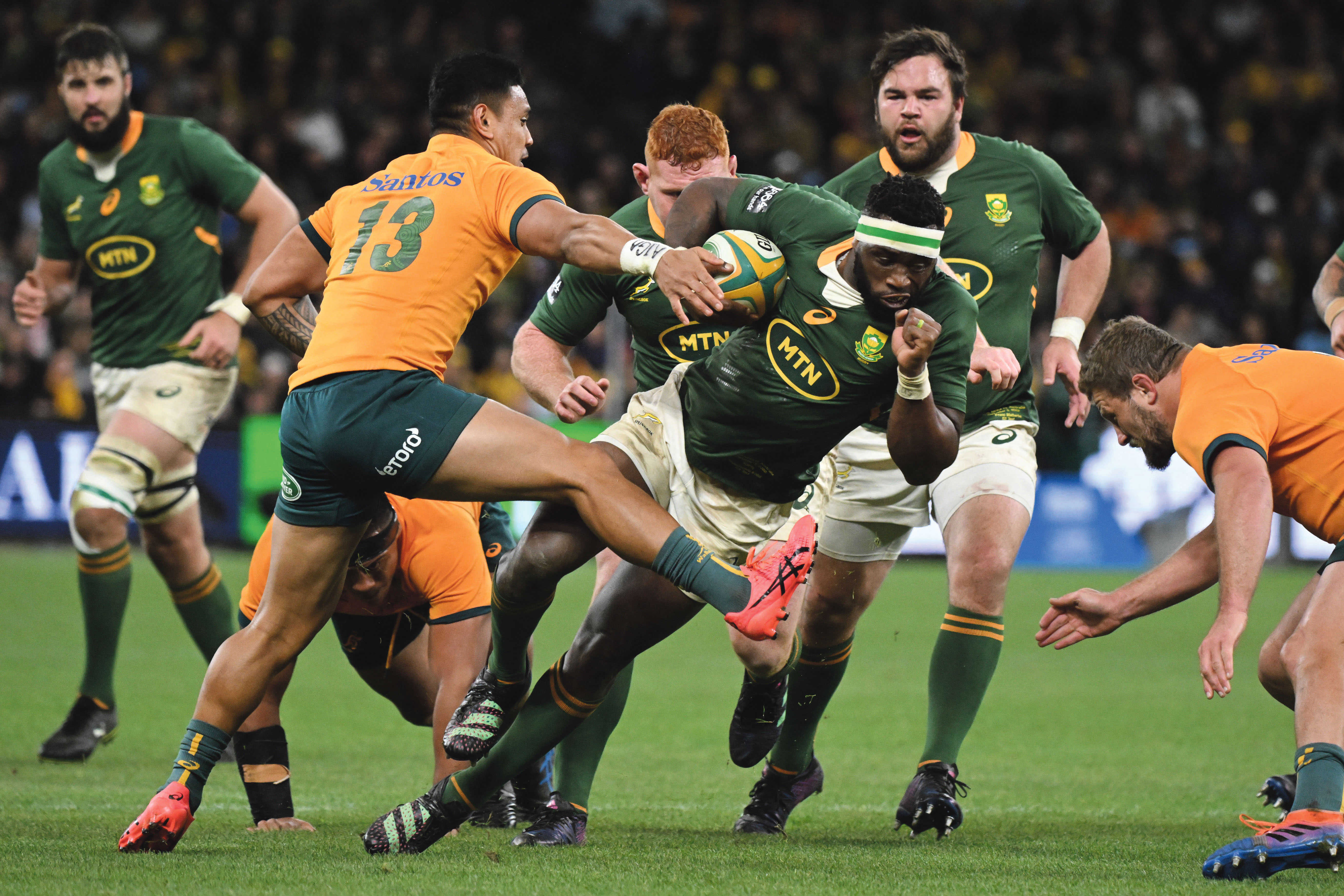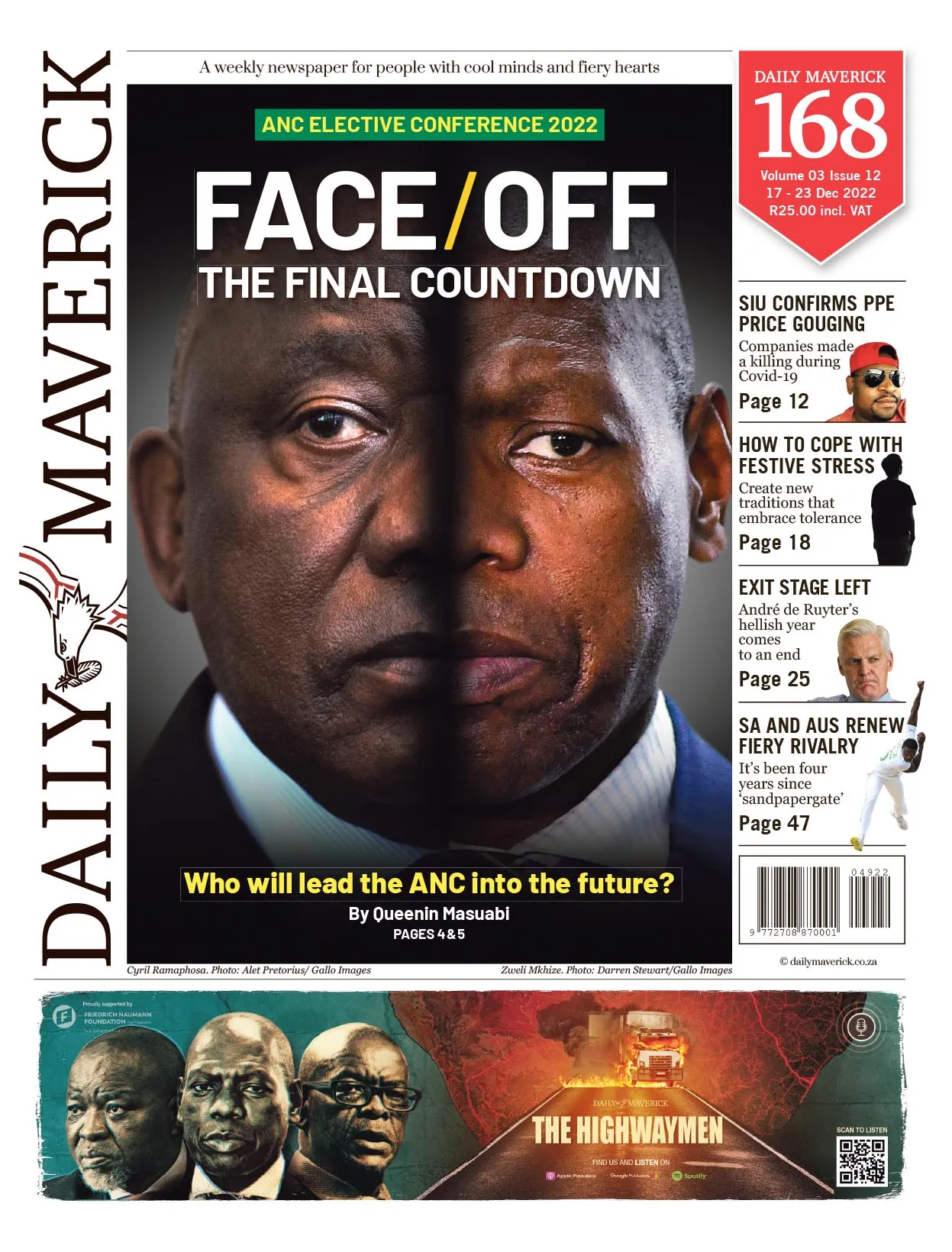The previous four Springbok coaches each took vastly different approaches to navigating a perennially tricky third year in the World Cup cycle. At the end of the 2006, 2010, 2014 and 2018 seasons, the man in charge pleaded for patience as he built towards the quadrennial tournament.
It has got to the point where Bok teams are expected to underperform in the year preceding a World Cup. Coaches are quick to reference the third year in the previous World Cup cycle as if it’s a ready-made argument for failure in the short term and success in the future. Every Bok group that fails in year three, the argument asserts, can expect to improve in year four.
The problem with this argument is that it has been proved wrong as often as it has been right.
Slump no guarantee of success
The Boks won 42% of their Tests in 2006, yet they bounced back to win the World Cup the following year. They won 50% of their matches in 2018, yet went on to lift the trophy in Japan in 2019.
A rotten year in 2010 as well as an underwhelming season in 2014, however, foreshadowed landmark capitulations at the 2011 and 2015 global tournaments. Clearly, there are fundamental problems that are not limited to the third year of a cycle.
So how does Jacques Nienaber’s side measure up at this point?
This year won’t be remembered as one of the greats in terms of overall results (eight wins in 13 Tests), but the Boks did well to claim key scalps while staying true to their commitment to develop the wider squad with 2023 in mind.
Some context is necessary when assessing the current side. The Boks didn’t compete at Test level in 2020 owing to Covid-19 restrictions, and as many as 12 Tests – as well as a few South Africa A fixtures – were lost as a result. Nienaber and company were forced to adjust their four-year plan accordingly, with 2021 serving as year one and 2022 as year two.
The team went on to achieve identical overall win records in both seasons (62%). They failed to improve in this department from 2021 to 2022 and many may lament that the team have dropped to fourth place in the World Rugby rankings, but it would be a stretch to suggest that they experienced a slump.
 Jacques Nienaber, head coach of South Africa, reacts prior to the Autumn International match between England and South Africa at Twickenham Stadium on 26 November 2022 in London, England. (Photo: Warren Little / Getty Images)
Jacques Nienaber, head coach of South Africa, reacts prior to the Autumn International match between England and South Africa at Twickenham Stadium on 26 November 2022 in London, England. (Photo: Warren Little / Getty Images)
Visit Daily Maverick's home page for more news, analysis and investigations
Year of fine margins
A heavily rotated Bok team featuring six debutants lost by a single point against Wales in the second Test of the series staged in July. The defeat to the All Blacks in Johannesburg was disappointing given that they relinquished the chance to win consecutive matches against New Zealand and clinch the Freedom Cup for the first time since 2009.
And yet they managed to win four out of six games in the Rugby Championship for the first time since 2014.
The race for the title continued into the final round, with the All Blacks edging the Boks on points difference.
The Boks lost to Ireland and France by narrow margins, and in the aftermath many were frustrated by the team’s discipline and composure at key moments. That said, the Boks were more than competitive in the clashes that were staged in Dublin and Paris, and they took their game to the next level when they thrashed Italy and England in subsequent matches.
These two performances and results ensured the Boks went into the international break on a high. That they achieved these results without so many of their front-line players spoke volumes about their depth.
A historical context
In 2006, Jake White’s team lost 36-26 to France at home before losing four out of six games in the Tri-Nations. The Boks lost to Ireland in Dublin and to England in the first Test before White was called back to South Africa to explain the team’s results. Unlike Rassie Erasmus and Nienaber, White didn’t enjoy the same level of support from his SA Rugby bosses.
The Boks bounced back in the second game against England, but still finished the 2006 season with a win record of 42%.
An ageing Bok side started to show signs of deterioration throughout the 2010 season. After winning their first four matches, Peter de Villiers’s team lost five out of six games in the Tri-Nations.
They rebounded on the subsequent tour to Europe to boost their win record for the season to 57%. Those in the know weren’t surprised, however, when the Boks exited the 2011 World Cup at the quarterfinal stage.
In 2014, the Boks won seven of their first nine Tests before losing two on the four-game tour of Europe – for an overall win record of 69%. The defeats in Dublin and Cardiff proved a sign of things to come.
Heyneke Meyer’s side went on to lose all three of their 2015 Rugby Championship matches – a run that included an inaugural defeat to Argentina – as well as their World Cup opener against Japan in Brighton.
Erasmus was brought back to South Africa to resurrect the Boks in the wake of a nightmare run of results in 2016 and 2017. He took charge in 2018 – the third year of the World Cup cycle – and made it clear that the Boks would lose as much as they would win.
Erasmus’s prophecy came to pass when the Boks won 50% of their games. After losing 57-0 to the All Blacks and 38-3 to Ireland in 2017, they were more competitive in all the matches they lost in 2018.
They achieved several statement-making wins, too, beating England in a three-game series and claiming a landmark win against the All Blacks in Wellington.
Many declared that the Boks were back, but few believed that they had what it took to win the 2019 World Cup. As a result, they flew to Japan well under the radar.
 Rassie Erasmus, head coach of South Africa, lifts the Webb Ellis Cup at the Rugby World Cup 2019 final match between England and South Africa at International Stadium Yokohama on 2 November 2019 in Tokyo, Japan. (Photo: Juan Jose Gasparini / Gallo Images / Getty Images)
Rassie Erasmus, head coach of South Africa, lifts the Webb Ellis Cup at the Rugby World Cup 2019 final match between England and South Africa at International Stadium Yokohama on 2 November 2019 in Tokyo, Japan. (Photo: Juan Jose Gasparini / Gallo Images / Getty Images)
Continuity key to long-term success
Although their respective roles have changed over time, the coaching team of Erasmus and Nienaber has been at the helm of the Boks for the better part of five years. Apart from the year lost to Covid, the duo have had four full seasons to implement systems and structures and build an extended squad.
The core players of the side that won the 2019 World Cup and the 2021 series against the British & Irish Lions are still fit and firing. Erasmus and Nienaber have pushed forward with plans to experiment with younger players during the 2022 season, all with a view towards taking a balanced squad to the 2023 World Cup. As things stand, they are well placed to realise that goal.
The outlook at present is far more positive than at corresponding stages of the previous four World Cup cycles.
Not everything went according to plan in 2022, but the group ticked a number of boxes and will travel to France in September next year with a good chance of defending their title. DM168
This story first appeared in our weekly Daily Maverick 168 newspaper, which is available countrywide for R25.




 Rassie Erasmus, Head Coach of South Africa Rises the Webb Ellis Cup the Rugby World Cup 2019 Final match between England and South Africa at International Stadium Yokohama on November 02, 2019 in Tokyo, Japan. (Photo by Juan Jose Gasparini/Gallo Images/Getty Images)
Rassie Erasmus, Head Coach of South Africa Rises the Webb Ellis Cup the Rugby World Cup 2019 Final match between England and South Africa at International Stadium Yokohama on November 02, 2019 in Tokyo, Japan. (Photo by Juan Jose Gasparini/Gallo Images/Getty Images) 